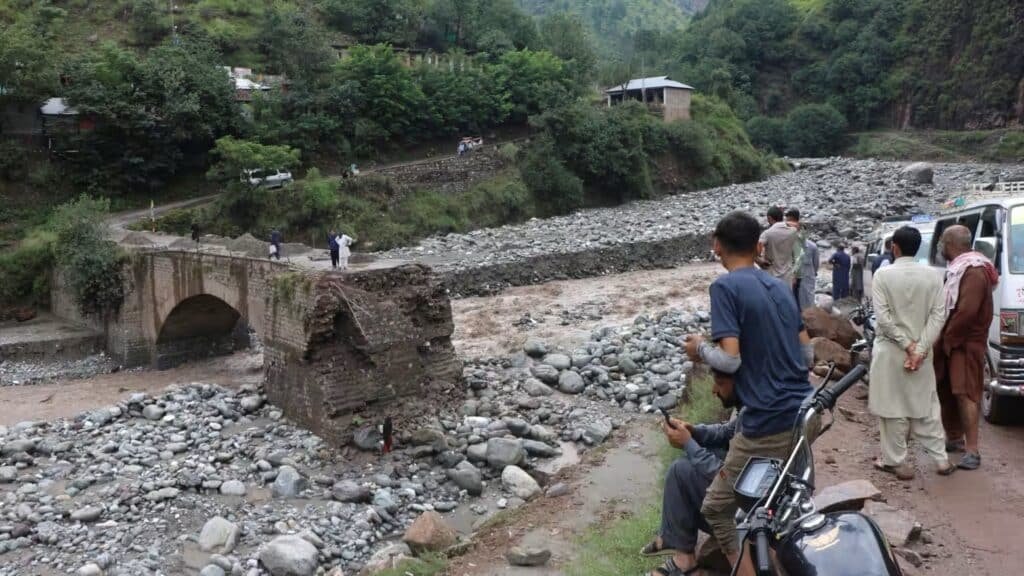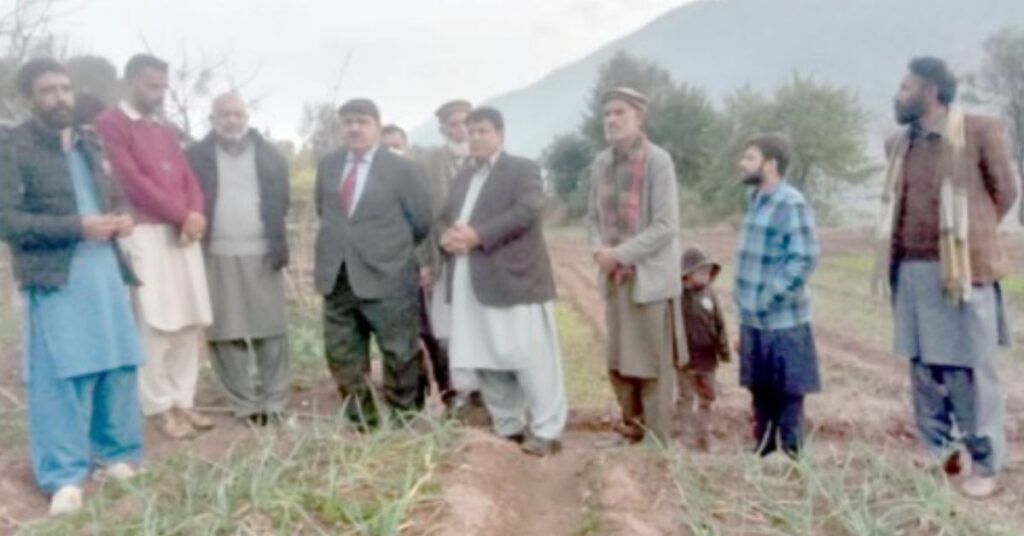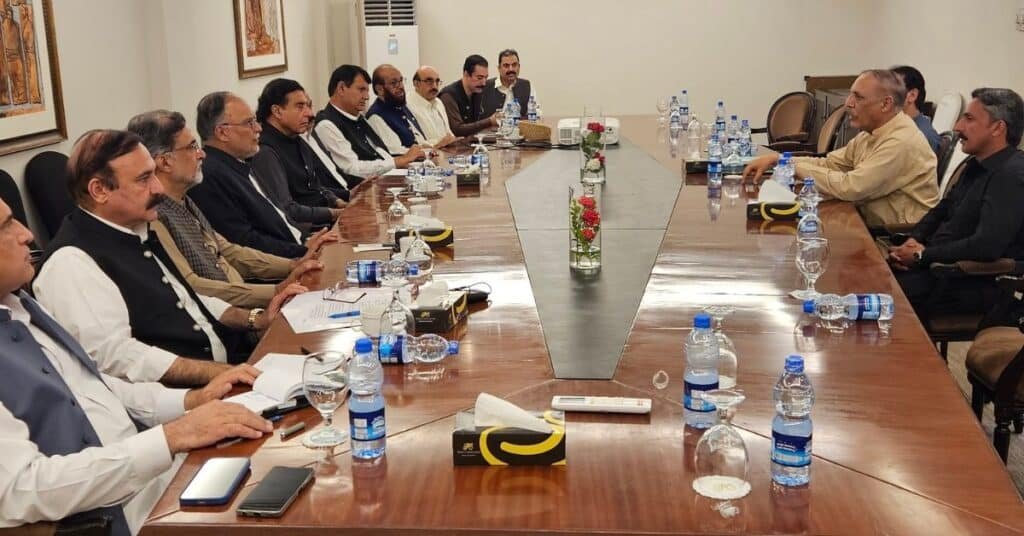MUZAFFARABAD (Kashmir Investigation Team): The Azad Jammu and Kashmir is currently on the brink of environmental catastrophe with severe weather conditions, including landslides and cloud bursts, persistently causing difficulties in Azad Kashmir.
Due to global warming and climate change, the natural, economic, and human existence of the region is facing serious threats. Unpredictable rains and snowfall, unexpected floods, melting of glaciers, and landslides are becoming a part of everyday life.
Despite this, the ruling class of the region is either deliberately turning a blind eye to this serious situation or is not willing to include it in its priorities.
A clear example of this negligence is that despite an official letter written by the Government of Pakistan two years ago, the Government of Azad Kashmir has not yet taken the initial steps required to obtain accreditation from the Green Climate Fund (GCF).
The GCF is an international financial institution that provides financial assistance to developing countries to deal with the environmental crisis. If Azad Kashmir gets accreditation from this fund, it could open the door to financial and technical resources to take concrete measures against climate change in the region.
But unfortunately, instead of taking advantage of this opportunity, there is continuous delay and negligence.
On August 29, 2023, the Ministry of Climate Change, Government of Pakistan, wrote a letter to the Government of Azad Jammu and Kashmir, drawing attention to its participation in the GCF and suggesting that the Government of Azad Jammu and Kashmir submit financially viable projects to the Ministry of Climate Change so that Azad Kashmir can get GCF accreditation.
The Ministry of Climate Change is the national institution designated by the Green Climate Fund in the country, which is responsible for all GCF-related projects.
A meeting was held under the chairmanship of the Planning and Development Department of Azad Kashmir on 18 September 2023, in which it was decided that the Government of Azad Jammu and Kashmir will work towards obtaining accreditation of the Green Climate Fund, and the Planning and Development Department will play a central role in this process as there is already close coordination and effective cooperation between the Climate Change Cell of the Environmental Protection Agency (EPA) and the P&D Department regarding the GCF.
At the same time, Imran Sadiq, Chief of the Forest and Environment Department in the Planning and Development Department, and Sardar Muhammad Rafiq Khan, Deputy Director, Climate Change Cell, Environmental Protection Agency, made a detailed presentation to the government about the GCF accreditation.
In this presentation, the government was informed about the introduction of the Green Climate Fund and the procedure for obtaining accreditation. It was stated that the institutions obtaining GCF accreditation are assessed according to the financial principles of the fund, environmental and social safeguards, and gender policy.
The presentation also explained that the accreditation process consists of three stages. In the first stage, a nomination letter is obtained from the nationally designated institution, an application is made to access the online accreditation system, the required documents are prepared, the accreditation form is completed and submitted, and the prescribed fee is paid.
In the second stage, the Green Climate Fund Secretariat reviews the completeness of the application, and several stages of question-and-answer sessions are held with the applicant institution.
Then, the GCF Accreditation Panel reviews the application in detail, seeks clarifications, and when satisfied, makes a recommendation to the Fund’s Board. The Board makes the final decision on whether to grant accreditation or not, and if so, with what conditions.
Officials say that despite all this, no practical progress has been made in this regard so far. According to them, in 2015, with the support of the Asian Development Bank, a Green Climate Cell was established in the Planning and Development Department, which included a Director General, a Director, a Deputy Director, and two Assistant Directors.
This cell issued a notification of the Azad Kashmir Climate Change Policy Implementation Committee, after which the Azad Kashmir Climate Change Policy was prepared in 2017.
The Azad Jammu and Kashmir Climate Change Strategy and Climate Change Action Plan were prepared to implement this policy. According to officials, the next step was to implement the policy, but after about three and a half years, i.e., in 2019, this cell in the Planning and Development Department was closed and transferred to the Environmental Protection Agency.
Before the transfer, the posts of Director General, Director, and Assistant Directors were abolished
Officials say that there are also no experts in the Planning and Development Department, and due to this, no progress has been made on the issue of accreditation, and there are no prospects soon.




